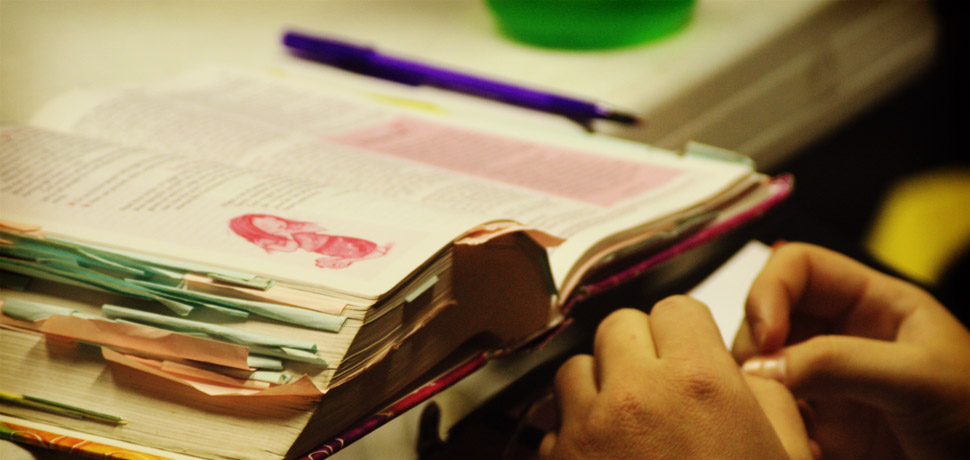How to reference like a pro

Picture this: you’re sitting at your desk in the pre-dawn light, staring with bleary eyes at your computer. Your housemates are fast asleep, and your only company is the far off birdsong and an almost empty Red Bull. You’ve just written a killer conclusion to your essay and might finally be able to catch a few hours’ sleep.
And then it hits you. You haven’t written a bibliography. You can’t remember the name of that article you read last week. You’re not sure where you got that quote. You’ve forgotten how to reference a book chapter. And what the hell is “ibid”?
Referencing – it’s the worst part of any uni assignment. Perhaps you’re new to the whole business, or maybe you’ve been trying to get it right for years. Either way, these tips will help you avoid those late-night brain freezes and start developing some good referencing habits.
Accept it
Referencing can be really, really boring. It’s finicky and it takes a lot of time. If you’re working on a big project like an Honours thesis, you can literally spend days just formatting a bibliography.
We hear you, it’s boring. But referencing is also really, really important if you want to pass those uni assignments. Your markers will look at your referencing and you can lose marks for being sloppy. The sooner you accept that referencing is not going to magically go away, the sooner you can move forward.

Take good notes
The key to good referencing is taking good notes in the first place. Help yourself by keeping clear, detailed records of your research.
Every time you write down a useful piece of information, also note the source. Include the title of the book/article/chapter, as well as the author’s name. Also write down the page number where you found the information. If you do this consistently, you’ll never find yourself scrabbling to locate that page number in a book you read two months ago.

Know when a reference is needed
When should you provide a reference in an essay? Many people don’t realise they need to cite another person’s idea, even when not directly quoting from them. Basically, if it’s not your thought, experience or conclusion, and it’s not a well-known fact, you need to reference it.
Knowing when to reference can be very confusing when you’re just starting out, but trust me, you will eventually develop a sense for it. In the meantime, it might be worth attending a workshop at your uni library. Your future self will thank you for it.
Stick to a particular referencing system
Chicago. Harvard. MLA. There’s a bewildering array of referencing systems out there, and all of them have their own rules. You will need to choose one and stick to it.
Some unis prefer a particular referencing system. However, often different faculties have their own preferences, making it really confusing for those studying across multiple disciplines. If in doubt, ask your tutor what they recommend.
Once you’ve chosen a referencing system, follow it religiously. That means no mixing of footnotes with in-text referencing. Find a style guide and keep checking that you’re on track.
Use reputable sources
No doubt you’ve heard this before, but it’s worth repeating: only use reputable sources in your essays. Wikipedia or random websites don’t count.
The best place to find well-respected academic material is through your uni library catalogue, which will link you to more journal articles than you could ever read.
Use software
Consider using a referencing program like Endnote. It may take some time to get your head around the program, but it can save you endless hours by formatting your references and bibliography.

Academic referencing is certainly complicated, and often boring. But it can also bring you a strange kind of satisfaction when you get it right. Plus, you can add “attention to detail” to your resume.
Melinda Cooper
Melinda loves reading on rainy days, drinking cups of tea and making things. She is doing a PhD in English at the University of Sydney.